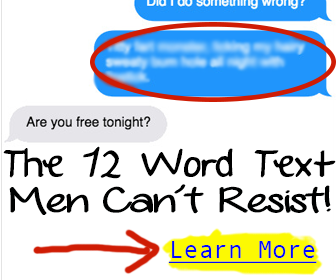Maintaining a balance between self-care and a relationship can be challenging, as they often seem to be at odds with each other. However, taking care of yourself is essential to your well-being, and nurturing your relationship is necessary for a fulfilling life. In this article, we’ll explore 10 tips for balancing self-care and relationships, so you can achieve both without feeling overwhelmed.
Table of Contents
Introduction
When it comes to balancing self-care and a relationship, it can be challenging to find a healthy balance. Many people believe that taking time for themselves means neglecting their partner or vice versa. However, the truth is that both self-care and relationships are essential for a happy and healthy life.
In this article, we’ll explore 10 tips for balancing self-care and relationships, so you can achieve both without feeling overwhelmed or guilty.
Understanding Self-Care and Its Importance
Self-care is the practice of taking care of yourself physically, emotionally, and mentally. It involves activities that promote your well-being, such as exercise, getting enough sleep, and taking breaks when needed. Self-care is not selfish; it is necessary for a healthy life.


The Importance of a Healthy Relationship
A healthy relationship is a partnership built on trust, respect, and open communication. It provides emotional support and a sense of security. Having a healthy relationship can improve your mental health, reduce stress levels, and enhance your overall well-being.
Balancing Self-Care and Relationship: Why It Matters
Balancing self-care and relationships can be challenging, but it is essential. Neglecting self-care can lead to burnout, fatigue, and physical and emotional exhaustion. Neglecting your relationship can lead to feelings of loneliness, isolation, and resentment.
Tips for Balancing Self-Care and Relationship
Here are ten tips for balancing self-care and relationships:
1. Communicate with Your Partner
Open communication is vital in any relationship. Talk to your partner about your needs, concerns, and goals. Be honest and direct, and listen actively when your partner speaks.
2. Set Boundaries
Setting boundaries is essential for maintaining a healthy relationship. Decide on what you are and are not comfortable with, and communicate that to your partner. Respect each other’s boundaries and adjust them as needed.
3. Make Time for Yourself
Make time for yourself every day, even if it’s just a few minutes. Do something you enjoy, such as reading, taking a walk, or meditating. This will help you recharge and feel more balanced.
4. Prioritize Your Health
Your health should always be a priority. Take care of yourself physically by eating well, getting enough sleep, and exercising regularly. Take care of yourself emotionally by processing your feelings and seeking support when needed.
5. Practice Mindfulness
Mindfulness is the practice of being present in the moment. It can help reduce stress and improve your overall well-being. Take a few minutes each day to practice mindfulness, such as deep breathing exercises, meditation, or simply focusing on your senses.


6. Learn to Say No
Learning to say no is crucial when it comes to balancing self-care and a relationship. It’s important to prioritize your own needs and not overextend yourself. Be assertive and communicate your boundaries respectfully.
7. Embrace Imperfections
Remember that perfection is not attainable, and it’s okay to have flaws and make mistakes. Embrace imperfections in both yourself and your relationship. Accept that challenges and disagreements are a natural part of any partnership.
8. Plan Date Nights
Make an effort to plan regular date nights with your partner. These dedicated times for connection and enjoyment can strengthen your bond and provide an opportunity to focus solely on your relationship.
9. Practice Gratitude
Expressing gratitude for your partner and the positive aspects of your relationship can foster appreciation and enhance the connection between you. Take time to acknowledge and be grateful for the love and support you receive.
10. Seek Professional Help if Needed
If you find that balancing self-care and your relationship is consistently challenging or causing significant distress, don’t hesitate to seek professional help. A therapist or counselor can provide guidance and support tailored to your specific situation.
Conclusion
Finding a balance between self-care and a relationship is essential for overall well-being and happiness. By prioritizing self-care, setting boundaries, and fostering open communication, you can create a harmonious balance that nurtures both yourself and your relationship. Remember that it’s okay to make mistakes, and seeking professional help when needed is a sign of strength.


FAQs
Can self-care negatively impact a relationship?
No, self-care should not negatively impact a relationship. In fact, practicing self-care can enhance the relationship by promoting individual well-being, reducing stress, and fostering healthier communication and boundaries.
How do I communicate my self-care needs to my partner?
Open and honest communication is key. Express your needs, concerns, and goals to your partner. Clearly communicate what activities or practices are important for your self-care and how they contribute to your overall well-being.
How often should we plan date nights?
The frequency of date nights depends on your individual preferences and schedules. Aim for regular date nights, whether it’s once a week, bi-weekly, or monthly. Consistency is key to nurturing your relationship.
Is it selfish to prioritize self-care?
No, prioritizing self-care is not selfish. Taking care of yourself is necessary for your overall well-being. When you prioritize self-care, you are better equipped to show up as your best self in your relationship.
When should we consider seeking professional help?
If you find that balancing self-care and your relationship is consistently challenging or causing significant distress, it may be beneficial to seek professional help. A therapist or counselor can provide guidance and support tailored to your specific situation.



